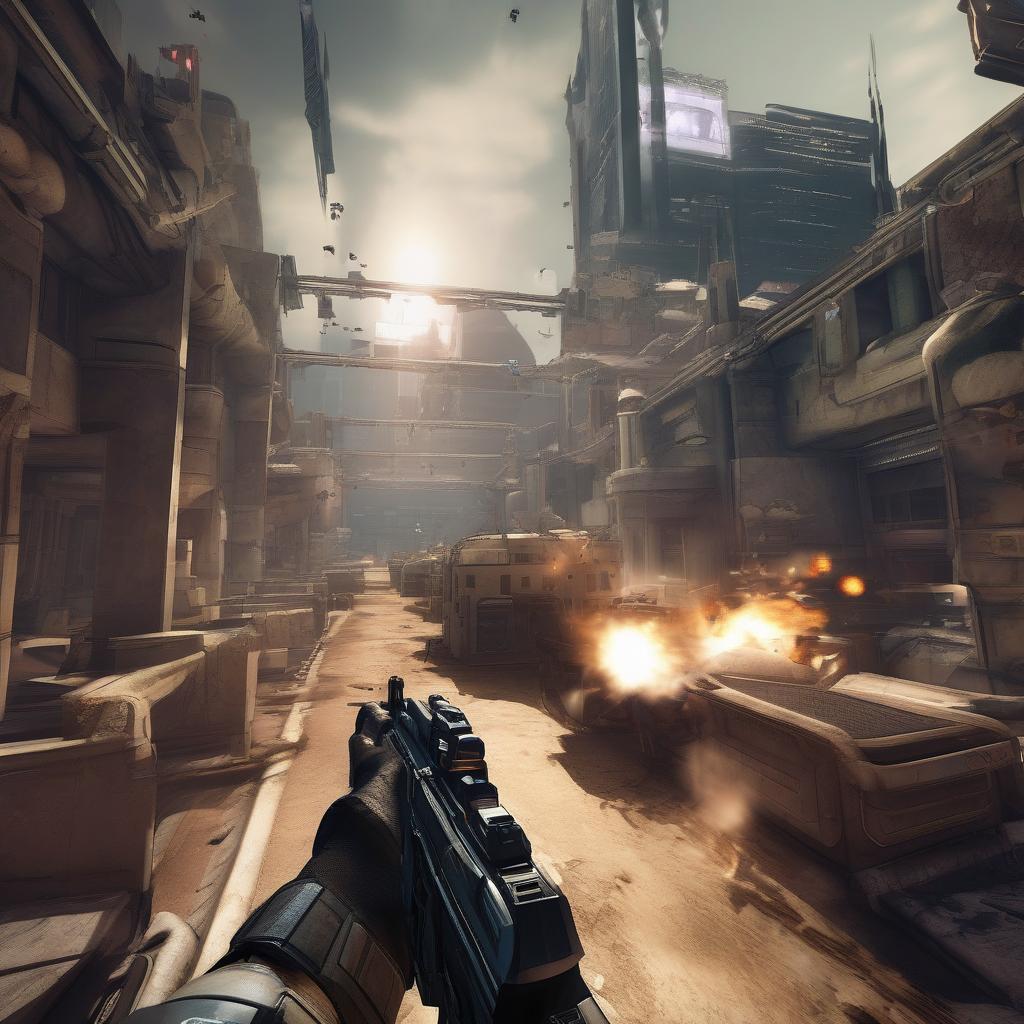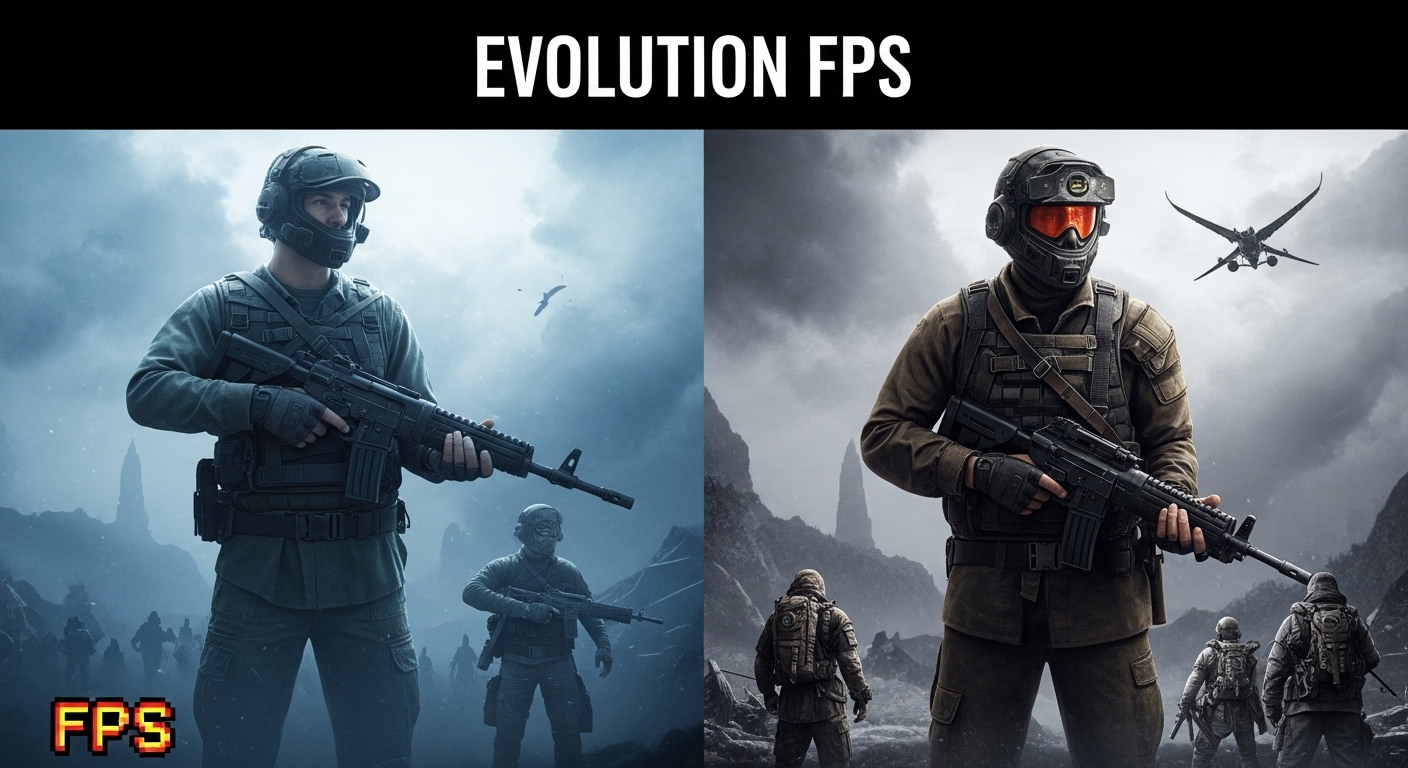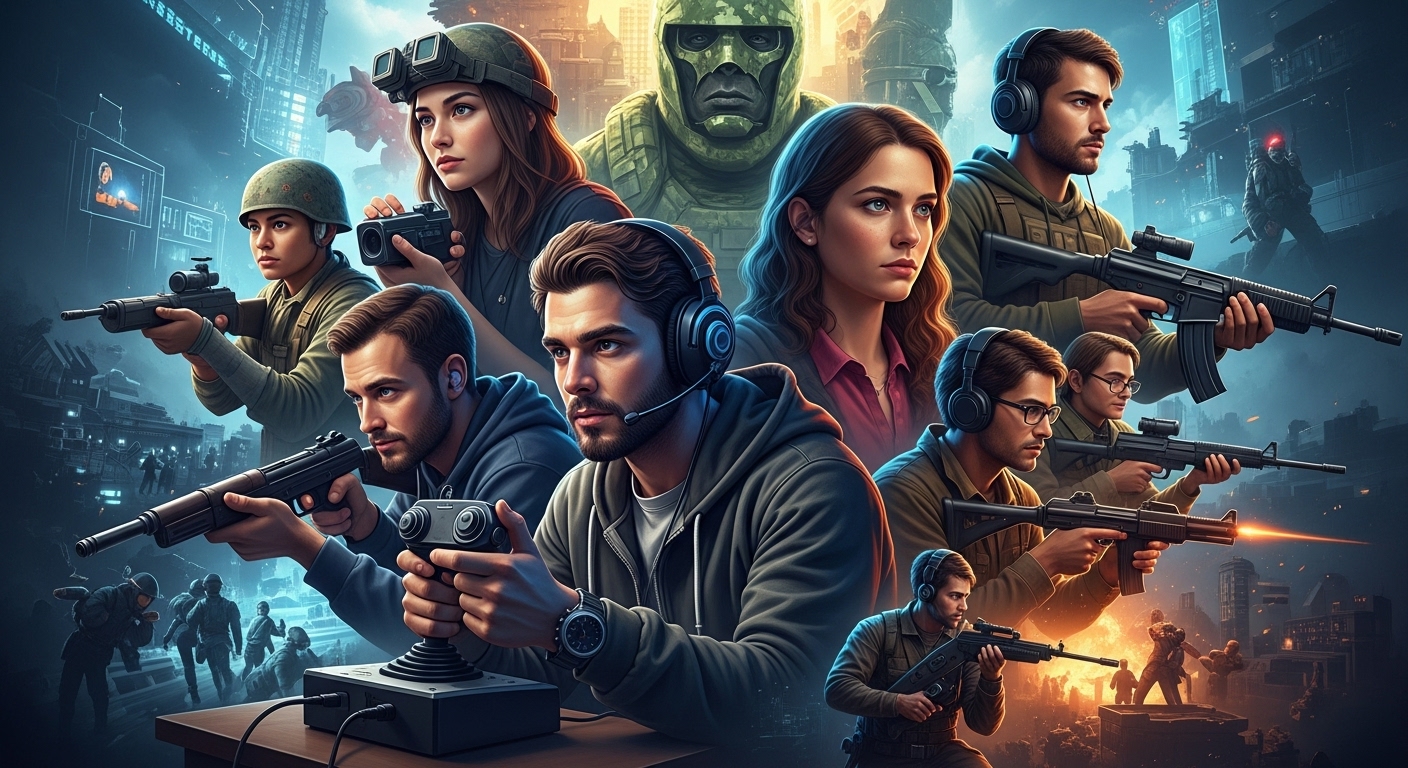So, what’s up with all the buzz around FPS games? They’re everywhere, right? From gaming conventions to online streams, this genre pulls massive crowds. FPS, or First-Person Shooter, blends action and strategy with a first-person perspective. This perspective, where you see the game through the character’s eyes, makes the experience immersive, almost like stepping into another world. Now, if you’re familiar with gaming, you know that FPS isn’t just a term, but a whole universe of its own. For more details on the concept and history of FPS games, you might want to check out this Wikipedia article.
The Origins: Where Did FPS Begin?
Let’s take a trip back. It all started in the early ’90s when games like Wolfenstein 3D and Doom hit the scene. These games were revolutionary, bringing something fresh and exhilarating. Before we knew it, FPS games were setting benchmarks, influencing not just how games looked but how they were played. Think about it: the thrill of navigating through corridors, blasting enemies, all in a virtual 3D space. A totally new level of engagement.
Evolution: Graphics and Gameplay
Fast forward a few years, and the graphics, gameplay, everything, just exploded in complexity and detail. Games became more realistic, more complex, with lifelike environments and intricate storylines. Remember Half-Life? It wasn’t just about shooting anymore. It was about solving puzzles, uncovering mysteries. Suddenly, the narrative became just as important as the shootout.
Online Multiplayer: Game Changer
Enter the multiplayer mode. This was a game-changer. You’re not just playing against AI anymore—you’re up against real, unpredictable humans with their strategies. The stakes became higher, the competitions fiercer. Games like Counter-Strike and Call of Duty transformed FPS into a global phenomenon, where online communities thrived and strategies evolved. It was a whole new world.
The Components That Make FPS Unique
There’s more to FPS than just shooting. It’s about the mechanics, the way the game feels. Let’s dig into some specifics.
Engines and Graphics
Game engines are the backbone of any FPS game. They determine how the game looks and runs. Engines like Unreal and Unity have made it possible to create stunning visuals and seamless gameplay. Remember, the better the engine, the smoother the experience. It’s what makes those stunning 4K graphics possible.
Weapons and Tactics
Weapons in FPS games are a big deal. The variety, the design, even the sound they make, adds to the experience. Plus, there’s the tactical element. It’s not just about having the biggest gun. It’s about strategy—knowing when to strike, when to hide, and when to run. Games like Rainbow Six Siege emphasize tactical gameplay, making every decision critical.
Environmental Interaction
Modern FPS games allow for environmental interaction. Breaking windows, opening doors, using the environment to your advantage. It adds a layer of depth to the gameplay. You’re not just a shooter; you’re a strategist, using the landscape to outwit opponents.
The Cultural Impact of FPS Games
FPS games have significantly influenced pop culture. They’ve inspired films, books, even music. Just look at the number of movies based on games or the soundtracks that incorporate game music. There’s something about the intensity and action of FPS that translates well beyond the gaming console.
Esports: The Competitive Arena
And then there’s esports. FPS games are a major part of this growing industry. Professional gamers, big tournaments, huge audiences—it’s become a big deal. Games like Valorant and Overwatch are at the forefront, with players and teams gaining celebrity status. It’s not just a game anymore; it’s a career, a spectacle, an event.
Challenges and Criticisms
Of course, FPS games aren’t without controversy. There’s ongoing debate about the impact of violent video games on behavior. Critics argue that the intense, often violent nature could desensitize players. However, many studies suggest there’s more to it, that the context and individual differences play a huge role.
The Role of Community
Then there’s the community aspect. Online gaming communities can be incredibly supportive or, sometimes, quite toxic. It depends on the game, the players, the moderation. Platforms and game developers are constantly working to create positive, inclusive environments. It’s an ongoing challenge.
What’s Next for FPS?
Looking forward, what’s in store for FPS games? With technology advancing at a rapid pace, the possibilities are endless. Virtual reality (VR) is already making waves. Imagine experiencing the game in a fully immersive, 360-degree environment. It’s the next frontier for gaming.
Cross-Platform Play
Cross-platform play is another exciting development. It’s about breaking barriers, letting players from different platforms compete or collaborate. It’s about inclusivity, bringing more players into the fold, and broadening the gaming community.
For further readings on FPS games and their implications, feel free to check out this comprehensive overview from Britannica.
The Personal Touch: Why We Love FPS
For many of us, FPS games are more than just a pastime—they’re a part of who we are. The thrill of the game, the community of players, the rush of competition. It’s a unique blend of adrenaline and strategy that keeps us coming back for more. If you’re looking for a deeper dive into various FPS games and their communities, you might find this link quite insightful.
So, next time you pick up the controller, remember: it’s not just about the game. It’s about the experience, the people, the stories. It’s about stepping into a new world, if only for a little while. And with that, I’ll leave you to your next adventure.
FAQs
- What’s the best FPS game to start with if you’re a newbie?
Honestly, something like Overwatch or Call of Duty can be good starting points. They’re popular and have a range of difficulty settings. - Are FPS games too violent for kids?
It really depends on the game and the age of the child. Parents should check the game’s rating and maybe try it out themselves first. - Is there a way to play FPS games without feeling stressed?
Take breaks, play in a relaxed setting, and maybe try games that focus more on strategy than constant action. - Do you need a high-end PC to play FPS games?
Not always. Many games have settings that allow for lower-end PCs. But yeah, a good setup enhances the experience. - What’s the appeal of FPS games?
For many, it’s the immersive experience and the thrill of competition. Plus, they’re a great way to connect with friends.



